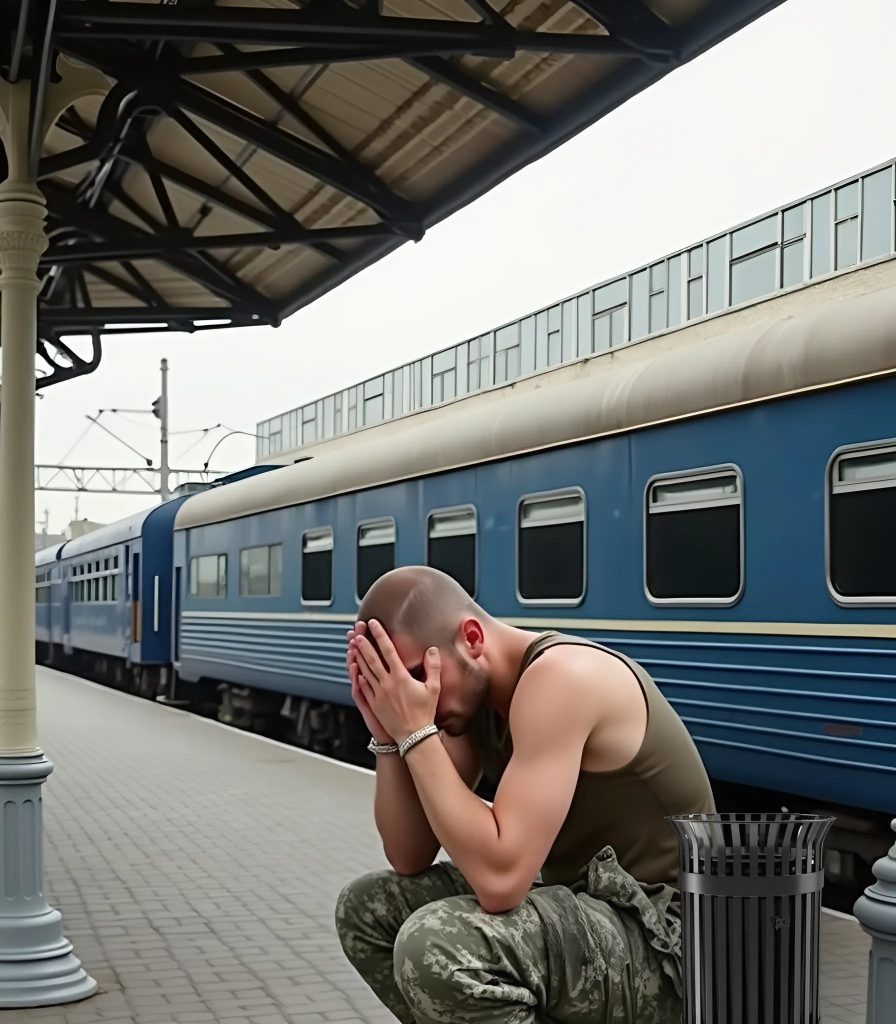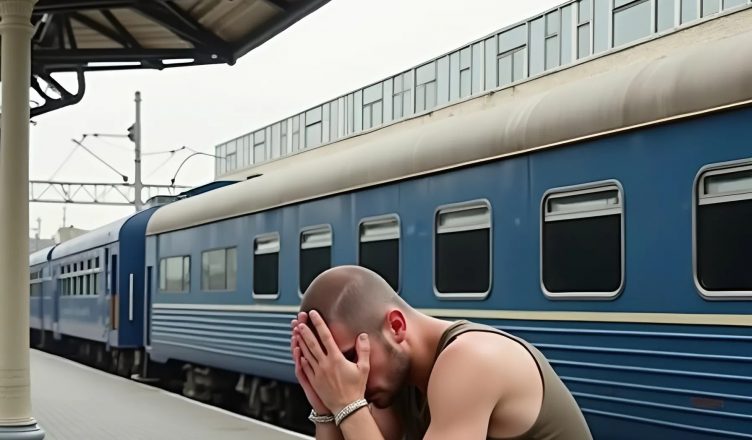There was a crowd on the platform of a small-town railway station, a familiar scene wrapped in an uncommon intensity. Amid the quiet hum of departure and arrival, a focal point had formed—a knot of people gathered around one young man. Luggage lay scattered on the concrete, momentarily forgotten, as eyes turned toward the center of the commotion. A soldier was being sent off.
The atmosphere was a strange symphony of contradiction: a man played a spirited tune on an accordion, another joined in with bold, slightly off-key singing. Some laughed. Some danced. But others cried. The music could not hide the gravity of the moment—it only painted over it with the last strokes of celebration before silence would take hold.

In the middle of it all stood a young man, tall and broad-shouldered, with a military-grade backpack strapped to him like a second skin. He wore the expression of someone torn between duty and home. With one arm, he held a delicate girl tightly against him. She clung to his chest, her face buried in the uniform she hated for stealing him away. Her shoulders trembled with quiet sobs.
His other arm embraced a woman in her forties, his mother. She said nothing. She had said it all the night before, and the night before that. Her face was composed, strong—but the tears, they betrayed her. They slid down silently, ignored even by her as she focused on standing still.
Beside them stood a man—his father—who said even less. His hand landed occasionally on the young man’s shoulder with a firm pat. The gesture was his language: simple, powerful, withholding the emotions he refused to let through.
Time seemed to stall around the three people who held the soldier’s heart. They needed just one more minute. One more word. One more promise. But time was never generous.
Suddenly, the whistle of the electric locomotive pierced the air. It was sharp and final. The music stopped mid-note, and the accordionist slowly lowered his instrument. The crowd stood still.
As the train began to slow, the familiar screech of metal on metal filling the air, all eyes turned to the carriages. They began to count. One… two… three…
Somehow, each number hurt. Each carriage that passed meant the moment of separation was closer. Every second now mattered more than all the days that had led to it.
Soon, the doors would open. The soldier would board. And everything would change.
And yet, in that suspended breath before the inevitable, a truth lived that everyone there felt but could not name: that love, when stretched by distance and danger, grows larger than the space between people. And that farewells at train stations are never just goodbyes—they are the silent contracts of faith, stitched in glances, in tears, in touch.
And in the silence that followed the music, the tears, and the final hug, a young man walked toward his duty, carrying not just a backpack—but the weight of those who loved him.
And the train, indifferent and unstoppable, waited with its doors open.
